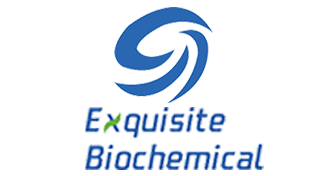Thyme leaves are a natural source of thymol, which is known for its powerful antiseptic and antimicrobial properties. This crystal-clear, aromatic compound is used extensively in the pharmaceutical, food, and cosmetic sectors for a variety of applications. Its distinctive fragrance is a key feature that distinguishes thymol from other compounds. It is a valuable ingredient in many personal care products due to its effectiveness in killing harmful bacteria and promoting skin health. Additionally, thymol has many culinary uses, making it an essential ingredient in many recipes. Overall, thymol is a potent, versatile compound with endless possibilities.
Applications
Thymol finds extensive applications across numerous sectors, encompassing a wide range of uses.
- As a food preservative and flavoring agent
Antimicrobial agents are commonly used for their effectiveness in killing or inhibiting microorganisms such as bacteria and fungi. They find wide application in mouthwashes, antifungal creams, and antibacterial soaps. These agents are vital components for maintaining good hygiene and preventing infections. They are also used as disinfectants for surfaces, instruments and medical devices. The antimicrobial properties of these agents make them highly effective in protecting against harmful microorganisms and ensuring a safe and healthy environment.
Natural pesticides and insect repellents are widely used to protect fruits, vegetables, and crops from pests and insects. These organic solutions provide an effective and safe alternative to synthetic pesticides. By utilizing the power of nature's own defenses, farmers and gardeners can promote healthy growth and protect their produce without causing harm to the environment or human health. The use of natural pesticides and insect repellents ensures the quality and safety of our food while minimizing the negative impacts of conventional chemical treatments. It's crucial to prioritize sustainable and organic methods in agriculture to maintain a healthy ecosystem and promote long-term viability in food production.
Why Use Sodium Acid Pyrophosphate?
Sodium Acid Pyrophosphate or SAPP is a versatile ingredient that is commonly found in baked goods like biscuits, bread, and cakes. Its primary functions are to act as a buffer and leavening agent that helps regulate the pH level and enhances the rising process, resulting in a fluffy and light texture. In addition to these, SAPP is also used as an emulsifier and preservative in processed foods like canned vegetables and meat. It serves to improve the overall stability and shelf life of these products. Thanks to its efficacy and versatility, SAPP has become an indispensable ingredient in the food industry.
Storage Conditions
To ensure the longevity and effectiveness of thymol, it should be stored in a cool and dry place that is free from direct exposure to sunlight and sources of heat. The thymol must also be kept in a securely sealed container that can protect it from moisture and other potential contaminants.
On the other hand, SAPP requires slightly different storage conditions. It must be kept in an area that is well-ventilated and dry, away from any incompatible substances or acids that could potentially react with it. Just like thymol, SAPP should be stored in its original container and sealed tightly to prevent moisture and other contaminants from entering. Following these storage guidelines is essential to ensure the long shelf-life and proper functioning of both thymol and SAPP.
Hot Tags: thymol, China thymol manufacturers, factory







